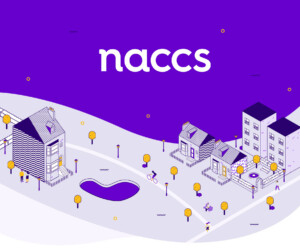Publicly-funded slum landlordism: the case of Clearsprings, Cromwood & NACCS

The system for housing asylum seekers in the UK sees the country divided into regional fiefdoms controlled by Mears Group, Serco and Clearsprings Ready Homes, through a set of decade-long contracts agreed with the Home Office.
Clearsprings Ready Homes is the contractor responsible for supplying accommodation in southern England and Wales. To many migrants’ rights campaigners, it is a name synonymous with gross profiteering off the backs of vulnerable people. But the company doesn’t act alone, subcontracting many of its housing services to a handful of middlemen.
Working with Good Jobs First and a coalition of groups campaigning to end the privatised system of asylum accommodation, Corporate Watch investigated Clearsprings’ subcontractors, Cromwood Ltd and Nationwide Accommodation Services Ltd (NACCS), to see where this public money has ended up.
We found:
- Rocketing revenues, profits and dividends for subcontractors under the Asylum Accommodation and Support Contracts (AASC), with a ninefold increase in Cromwood’s profits in the space of just three years.
- Investment property portfolios which appear to have been built off the backs of vulnerable people, with Cromwood and NACCS’ owners having set up dozens of new real estate companies since 2022.
- Evidence that Cromwood’s owners have been renting investment properties to their own companies.
- The leading shareholder of a company that was removed as a subcontractor for audit failures is still effectively benefiting from public money to provide asylum accommodation via NACCS, another of its businesses.
To read more about Clearsprings’ housing offences, check out Good Jobs First’s new blog post.
The Asylum Accommodation and Support Contracts (AASC)
The Asylum Accommodation and Support Contracts (AASC), awarded in 2019 to Mears Group, Serco and Clearsprings Ready Homes, anticipated an expenditure of £4.5bn over their ten-year lifespan. However, costs have since spiralled, with recent Home Office projections published by the National Audit Office expecting them to exceed £15bn.
Due to backlogs in the asylum system and a shortage of available housing, hotels have increasingly been used to house people and currently account for 76% of the annual costs of the contracts. But their expense, and the fact that they have become a focal point for the far-right, means the government is planning to reduce their use and move hundreds of people to disused army barracks. The government continues to rely on these barracks despite criticisms that they are dehumanising and inadequate for people fleeing war and persecution.
However, many asylum seekers will end up in longer-term housing known as dispersal accommodation, rented from private landlords through subcontractor middlemen engaged by the main contractors – Mears, Serco, and Clearsprings Ready Homes.
In October 2025, a Commons cross-party home affairs committee report found inadequate service delivery from these companies, soaring profits, and a critical lack of oversight of the contractors and subcontractors. It called for greater transparency over which companies are hired to provide the accommodation and urged the government to establish a clear review process for subcontractors.
Clearsprings Ready Homes…again
There are several reasons why the committee came to its conclusions. Clearsprings has seen its income explode since Corporate Watch reported on its migrant camp profiteering in 2020; rising from £68m to £1.7bn in just four years. In that time, the company has earned £3.7bn in revenue, reporting £187m in profits after tax and paying out dividends of £183m to shareholders in the same period. Last year, the company – which has been described by Good Jobs First as “one of the most fined landlords in London, Wales and the south of England” – was also accused of funnelling money offshore using opaque arrangements.
So where do these public funds end up? Well, a chunk of it goes into the pockets of Clearsprings’ billionaire owner, Graham King. Last year, the man once dubbed the ‘king of asylum slums’ made it onto the Sunday Times’ list of the UK’s richest people, outranking JK Rowling.
But the money also goes into the coffers of Clearsprings’ subcontractors. A 2024 freedom of information request by Liberty Investigates reveals the names of four ‘material subcontractors’ for the south of England – that is, contractors which received at least £500,000 over the contract term:
- Cromwood Ltd (15% of dispersal accommodation)
- Nationwide Accommodation Services Ltd (30% of dispersal accommodation)
- Comwood Croydon Limited (100% of initial accommodation)
- Hills Consortium Limited (15% dispersal accommodation)
We found that two of these subcontractors, Cromwood Ltd and Nationwide Accommodation Services Ltd, appeared to show a pattern of accumulating investment portfolios off the back of state-funded work, so we decided to investigate further.
Cromwood Ltd
Cromwood Ltd is a housing management company that acts as a middleman between the government and landlords, providing accommodation for the homeless and people seeking asylum. Together with Cromwood Housing Ltd (CHL), a for-profit social landlord, it forms the Cromwood Housing Group. Established and headquartered in Hackney since 2002, Cromwood claims to be one of the leading providers of social housing to local authorities in London and Greater Manchester.
A long track record of dire conditions
The plight of asylum seekers and other tenants in Cromwood properties is long-documented. In 2016, The Guardian first reported on overcrowded, filthy and dangerous conditions endured by 30 people seeking asylum crammed into a converted house in Hounslow. This was followed in 2018 by further reports of Cromwood renting out ‘micro-flats’ with fire safety risks in Croydon, and leasing illegally subdivided flats in Brent so small they violated regulations. In 2021, asylum seekers in Ruislip were subjected to cramped accommodation with rats, cockroaches, water leaks and damp, and reported that the company cut the power supply at night to save money.
In 2024, the parents of a baby girl who died at just 28 days old whilst living in a Manchester Cromwood flat with mould, damp and sewage leaks blamed the conditions for her death, and recounted the callous attempts of company staff to evict them in the weeks after. In 2025, a homeless family placed in temporary accommodation run by Cromwood in Oldham went to the local press about the freezing, damp and mouldy conditions they were forced to live in.
In 2020, Cromwood, this time subcontracting for Serco, was responsible for managing accommodation for asylum seekers on the former RAF base Coltishall in Norfolk. Once again, there were reports of poor conditions, before the site was eventually closed down in 2021.
Soaring revenues, profits and dividends
In its time as a Clearsprings subcontractor, Cromwood’s revenues have increased nearly sevenfold in just three years; from £21m in 2022, to £104m in 2023 and £141m in 2024. In the same time frame, profits have increased ninefold; from £3.2m in 2022 to a little over £23m in 2023, and £29m in 2024. That amounts to a total of £55.5m profit, from £266.8m in revenue. In 2024, Cromwood Ltd declared £22m of dividend payments, taking the total payouts over the last two years to £29m. This money has been paid to the companies that own Cromwood, which in turn are owned by its chief executive officer (CEO), Moses Hirschler, and its chief financial officer (CFO) Moses Lorincz.
A burgeoning investment property portfolio
Corporate Watch has found that Hirschler and Lorincz control 69 real estate investment and management companies between them, including Cromwood Ltd and Cromwood Housing Ltd. Just under half (34) of the companies have been set up since 2022. Between them, the companies owned by Hirscher and Lorincz have reported an investment property portfolio that is now worth at least £126m. The true figure is likely to be higher, as at the time of writing, 14 of the companies are yet to report their first annual accounts to the UK’s corporate registry, Companies House.
The public money being paid to Cromwood appears to have been used to amass this property empire. Cromwood is then renting some of the properties, earning Hirschler and Lorincz even more public money. We found that in the last two years, Cromwood had paid 17 other companies owned by Hirschler and Lorincz a total of £1.9m in rent. This gives us a glimpse of the earning potential of just a fraction of this property portfolio. In addition, Cromwood has loaned £10.7m to eight companies owned by the pair, seemingly to finance further property investments.
Mendy Stern, chief operating officer, and shareholder of sister company CHL, also receives rental income from Cromwood via another company he owns – Southland Investments Ltd. Southland was previously owned by Issac Lorincz when, in 2018, it was revealed to have an HMO, a former family home converted into six micro-flats, as part of a Guardian report exposing the conditions of Cromwood’s tenants.
The story of Cromwood is one of state-funded slum landlordism. Responding to criticisms in 2018, Cromwood claimed it made “peanuts”. Yet like primary contractor Clearsprings, it has been able to cream more than enough money off the top to report enormous revenue, profit and dividend growth.
Nationwide Accommodation Services Ltd
Long-time Corporate Watch readers may remember Nationwide Accommodation Services Ltd (NACCS), which we reported on in 2020. Back then, it was the subcontractor running Napier barracks, a Ministry of Defence site in Folkestone which has been used to accommodate asylum seekers in conditions likened to prison. While NACCS’ publicly lauded the ability of landlords to grow rich while they slept, conditions at the barracks were so bad that they were ruled unlawful by the High Court.
Fast forward to 2025, and the slick NACCS website appeals to rentiers with a ‘turnkey’ proposition: long-term guaranteed rental income and help to get a property up to minimum standards, with the cost being paid back out of future earnings. The company only publishes small company accounts, which means we are not able to see details of income and profit that one would see with full company filings. However, NACCS currently has £4m-worth of assets, and we know – from its inclusion in the Home Office FOI response – that it receives more than £500,000 a year from Clearsprings. We can also look at the fortunes of the people who own NACCS, and here we see a familiar pattern emerging.
NACCS is owned by Theset Ltd, which, in turn, is owned by two men: Mohsin Kothia and Waseem Tailor. Between them, Kothia and Tailor own 42 companies, 32 of them having been set up since 2022. They own 18 of these companies together, the majority (16) are subsidiaries of Theset.
Theset was incorporated at the address of Filtons Stratford Ltd, an East London estate agent and another of Kothia and Tailor’s outfits. During the 2012 London Olympics, the company advocated the incorporation of clauses in rental contracts allowing tenants to be kicked out to make way for ‘holiday lets’ for Olympic visitors. Kothia said that his company did this because “effectively the agent will make double money”. In December 2023, Filtons was fined for failure to comply with anti-money laundering regulations.
Besides owning NACCS and Filtons, Theset is the largest single shareholder (with a 42% stake) in disgraced Home Office and Clearsprings subcontractor Stay Belvedere Hotels Ltd (SBHL). Earlier this year, the Home Office announced it was removing SBHL, which was running 51 hotels in England and Wales, as well as Napier Barracks, from the AASC contracts owing to performance concerns. Despite its ignominious end, SBHL proved a lucrative enterprise for its owners: in under two years (before it stopped publishing full accounts), it reported paying out a total of £47.5m in dividends. Yet through NACCS, SBHL’s principal beneficiaries – Theset, and ultimately, Kothia and Tailor – are continuing to profit from the publicly-funded accommodation system via other means, raising major ethical questions that have so far evaded examination.
And there will be no respite for asylum seekers at the mercy of SBHL, as the Home Office immediately announced that the contract would be handed to Corporate Travel Management (CTM), the firm which operated the infamous Bibby Stockholm ‘floating prison’ (and the subject of a 2023 Corporate Watch exposé).
Theset’s latest accounts show the company has accumulated £34m of investment property as of 31st March 2024, up from £734k in April 2020. In addition, eight other companies controlled by Kothia and Tailor have declared fixed assets of £56m.
The eight companies with £56m of fixed assets
Asset Rock Tottenham Ltd: £11.3m
BM Brentford Asset Limited: £10.7m
Stratford Water Lane Limited: £8.7m
Clapham Residential Ltd: £7.8m
Parkhurst Homes Ltd: £5.3m
Suffolk Park Limited: £5.1m
Adenset Trading Ltd: £4.9m
Peckham Residential Development Limited: £2.3m
Given these are real estate companies, it is reasonable to conclude that the fixed assets are further property investments. As such, in total Kothia and Tailor’s companies control a £90m property portfolio between them, and these businesses are among those which have been set up since 2022. Crucially, at the time of writing, 19 of the 42 companies owned by Kothia and Tailor are yet to publish their first set of accounts. In the coming year, we will see if additional investment property is declared by the pair through these companies too.
There is solid evidence to indicate that, through both NACCS and SBHL, Kothia and Tailor have funnelled public money, acquired through subcontracting on AASC contracts with Clearsprings, into a significant property portfolio. Once again, we see the state funding investment property portfolios, landlordism and the rentier economy through privatised systems of public service. And those that reap the benefits, as ever, do so despite dire track records.
An obscene system in need of urgent change
Commenting on the for-profit accommodation system, Jawad Anjum from Migrants Organise said:
“Our members face a hostile environment from when they arrive, dealing with issues such as bed bugs, overcrowding and medically unsuitable food. For those who are dispersed, the problems continue. Like many renters in HMOs, one of our members has had damp and mould, broken kitchen equipment and at one point – a ceiling that was pooling water and looked like it was going to cave in.”
They explained that understanding the law is not enough to protect vulnerable residents:
“Even knowing her housing rights, she was afraid of the repercussions of taking action. We need better enforcement around HMOs and investigation into Clearsprings’ management of their stock.”
People seeking safety continue to be housed in undignified, squalid conditions while public funds are used to expand landlords’ property portfolios and pay millions in dividends to shareholders. There is no excuse for extortionate profits, lack of transparency, and substandard service delivery, and the fact that this persists is evidence that the accommodation system is part of a deliberate state policy to maintain a hostile environment for migrants in the UK.
For some people fed up with the cost of living, precarious work and rampant inequality, it’s easier to join the pile-on on vulnerable migrants than to direct frustration against the faceless companies making millions from the public purse. As far-right protests outside hotels housing asylum seekers have become normalised, this misplaced anger towards those who have so little is bitter irony. So, it is crucial that we recognise who the real winners are in this system and don’t stop saying it: Cromwood, NACCS, Clearsprings and the other for-profit contractors who are growing rich in their sleep.
Cromwood and NACCS were approached for comment on the points raised in this piece, but did not respond to the allegations.
If you are a campaigner and would like to know more about any of these subcontractors, get in touch with us via contact [at] corporatewatch.org.
To get involved in the campaign for dignified housing for refugees, see Migrants Organise, Refugee Action, and Ramfel.





